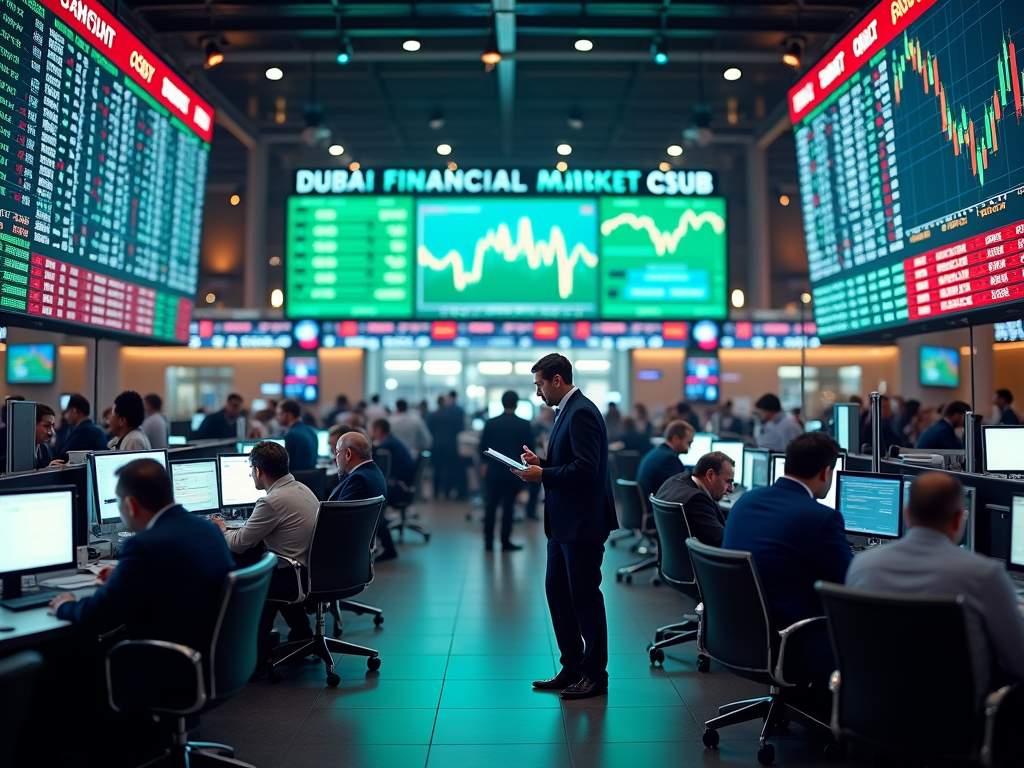The Dubai Financial Market (DFM) plays a pivotal role in the United Arab Emirates’ economy, serving as a platform for trading securities and ensuring transparent market operations. Established in 2000, the DFM has grown to become one of the leading stock exchanges in the region. Its primary functions include providing liquidity, facilitating capital formation, and enabling asset management. In this article, we will delve into the structure, functions, and importance of the DFM, helping you understand its critical role in the financial landscape of Dubai and beyond.
Key Functions of the Dubai Financial Market

The DFM serves several essential functions that contribute to its significance in the financial sector. These functions not only support investors but also enhance the overall economic stability of the region. Here’s a breakdown of the key functions:
- Capital Raising: The DFM enables companies to raise capital by issuing shares to the public, facilitating growth and expansion.
- Liquidity Provision: The market provides a venue for investors to buy and sell securities, ensuring there is enough liquidity for the smooth functioning of trades.
- Price Discovery: Through trading activities, the DFM helps in the determination of fair market prices for securities based on supply and demand.
- Investment Opportunities: Investors have a wide variety of investment options, including stocks, bonds, and other instruments, allowing them to diversify their portfolios.
- Regulatory Oversight: The DFM operates under regulatory frameworks that ensure fair and transparent trading practices, protecting investors’ interests.
The Structure of the Dubai Financial Market

The DFM is structured to facilitate efficient trading and investment processes, with several key components. Understanding the organizational structure can help investors navigate the market more effectively. Key elements include:
- Listed Companies: These are public companies whose stocks are available for trade on the DFM.
- Market Indices: The DFM General Index reflects the overall market performance and helps investors gauge market trends.
- Brokerage Firms: Licensed brokers assist investors in buying and selling shares, providing essential services and expertise.
- Regulatory Authority: The Securities and Commodities Authority (SCA) oversees market operations, ensuring compliance with laws and regulations.
- Trading Platform: The electronic trading system facilitates real-time transactions, offering greater efficiency and transparency.
Importance of the DFM in the UAE Economy
As one of the key financial hubs in the Middle East, the DFM plays a crucial role in shaping the economic landscape of the UAE. Its significance extends beyond mere trading activities, impacting various sectors and contributing to economic growth in several ways:
First, the DFM encourages foreign direct investment (FDI) by providing a stable and regulated environment for investors. Companies that participate in the DFM can reach a broader base of international investors, enhancing their visibility and credibility. This influx of investment can stimulate economic growth, create jobs, and foster innovation.
Second, the market acts as a thermometer for the economic climate, with trends and metrics derived from DFM activities often serving as indicators for economic health. Third, by providing a variety of financial products, the DFM meets the diverse needs of both retail and institutional investors, broadening the financial ecosystem.
Finally, the DFM’s commitment to transparency and regulatory compliance helps to foster investor confidence, which is essential for maintaining a robust financial environment.
Despite its successes, the DFM faces several challenges that could impact its growth trajectory. Identifying these challenges is crucial for stakeholders aiming to leverage opportunities in the market. Key challenges include:
- Market Volatility: Economic uncertainties can lead to increased volatility, affecting investor confidence and market performance.
- Regulatory Changes: Changes in regulations can pose challenges for both brokers and investors, necessitating constant adaptation.
- Competition: The rise of alternative trading platforms and global exchanges can dilute its market share.
- Investor Awareness: A lack of awareness and understanding among potential investors can hinder market participation.
- Technological Integration: Keeping pace with technological advancements is essential to maintain efficiency and security in trading operations.
Conclusion
In conclusion, the Dubai Financial Market serves as a cornerstone of the UAE’s financial landscape, facilitating capital formation, providing liquidity, and enhancing investment opportunities. Its structured organization and regulatory oversight ensure a safe and efficient trading environment, contributing to economic growth and stability. However, challenges such as market volatility and increased competition require ongoing attention. By understanding the DFM’s role and navigating its complexities, investors can harness its potential to achieve their financial goals.
FAQ
- What types of securities are traded on the DFM?
The DFM lists a variety of securities, including stocks, bonds, and ETFs, providing diverse investment options for investors. - How is the DFM regulated?
The DFM operates under the oversight of the Securities and Commodities Authority (SCA), ensuring compliance with regulations to protect investors. - Can foreign investors trade on the DFM?
Yes, foreign investors are allowed to trade on the DFM, subject to specific regulations that may vary based on nationality. - What is the DFM General Index?
The DFM General Index is a benchmark that reflects the performance of all listed securities on the market, helping investors gauge overall market trends. - How can investors participate in the DFM?
Investors can participate by opening an account with a licensed brokerage firm that provides access to the DFM and its trading platform.



